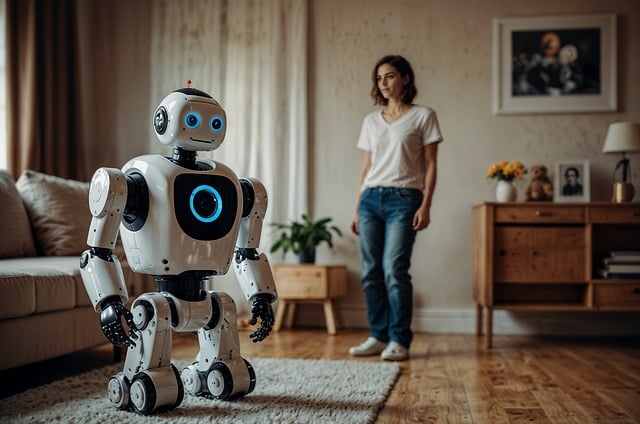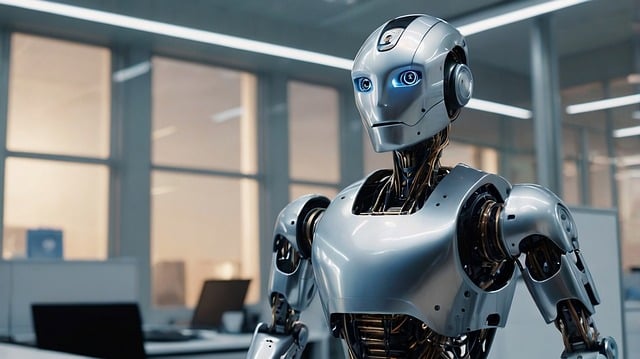The advancements in AI automation have significantly upgraded conversational AI systems from basic chatbots to sophisticated AI assistants capable of natural language processing that closely mimics human conversation. These enhancements are fueled by complex algorithms, machine learning techniques, and a proactive approach, enabling them to anticipate user needs and provide efficient customer service. The integration of voice interactions allows users to engage with these AI assistants through both text and voice across multiple platforms and devices. As a result, AI automation has led to more intuitive, adept conversational interfaces that are becoming increasingly integral to various industries. The ongoing development in this field is set to bring about substantial changes in customer service, cost reduction for businesses, and unparalleled support for consumers through continuously learning and adapting systems, offering a heightened level of convenience with personalized assistance that becomes more intuitive over time. Keywords: AI Automation, AI Assistants.
In recent years, the realm of conversational artificial intelligence has burgeoned, with AI automation and AI assistants transforming how we interact with technology. This article delves into the multifaceted capabilities of these systems, exploring their evolution from rudimentary chatbots to sophisticated interlocutors capable of providing nuanced responses and personalized experiences. We will navigate through the integration of AI automation into customer service, opening new avenues for businesses to enhance engagement and streamline operations. Furthermore, we’ll peer into the future of human-AI interaction, where predictive models promise to further refine our digital exchanges, making them more intuitive and effective than ever before. Join us as we chart the trajectory of conversational AI systems and their profound impact on the landscape of customer service and beyond.
- Unveiling the Capabilities of AI Automation in Conversational AI Systems
- The Evolution of AI Assistants: From Simple Chatbots to Sophisticated Interlocutors
- Integrating AI Automation into Customer Service: A New Frontier for Businesses
- The Future of Human-AI Interaction: Predictive Models and Personalized Experiences
Unveiling the Capabilities of AI Automation in Conversational AI Systems

The realm of conversational AI systems has seen remarkable advancements with the integration of AI automation technologies, revolutionizing the way businesses and consumers interact with machines. At the heart of this evolution are AI assistants, which have evolved from simple chatbots to sophisticated entities capable of understanding and processing natural language at a level that closely mimics human conversation. These AI-driven systems employ advanced algorithms and machine learning techniques to interpret user queries, generate contextually relevant responses, and even predict user needs before they are explicitly stated. This proactive approach not only streamlines customer service operations by handling a high volume of inquiries but also enhances the overall user experience by providing immediate assistance and personalized engagement. As AI automation continues to refine its capabilities, we can expect these systems to become even more intuitive and adept at managing complex interactions, thereby setting a new standard for conversational interfaces in various industries.
Furthermore, the integration of AI automation into conversational AI systems extends beyond mere text-based exchanges. With advancements in natural language understanding and speech recognition, AI assistants are now also adept at voice interactions, making them accessible across a wider array of platforms and devices. This seamless transition between voice and text capabilities allows for consistent user experiences whether through a chat interface on a website or via a voice assistant in a smart home environment. As these systems learn from each interaction, they become more efficient and accurate, ensuring that users receive not only prompt responses but also increasingly relevant assistance over time. The implications of such advancements are vast, promising to transform the customer service landscape, reduce operational costs for businesses, and provide end-users with a level of convenience and support that was previously unattainable.
The Evolution of AI Assistants: From Simple Chatbots to Sophisticated Interlocutors

AI assistants have undergone a remarkable transformation from rudimentary chatbots to sophisticated interlocutors capable of handling complex conversations with human-like finesse. Initially, these systems were basic rule-based programs that could perform simple tasks like answering frequently asked questions or guiding users through predefined dialogues. However, advancements in AI automation have significantly enhanced the capabilities of these assistants. Today’s AI-driven chatbots leverage natural language processing (NLP) and machine learning to understand and respond to a vast array of queries with a level of nuance and context awareness that was once the domain of human conversation. This evolution has been driven by massive datasets, powerful algorithms, and significant computing power, enabling these systems to learn from interactions, adapt to new scenarios, and even exhibit elements of personality or character, making them not just functional tools but engaging companions in our digital lives. The integration of AI automation into AI assistants has thus transformed them into versatile helpers that can perform a myriad of tasks, from scheduling appointments to providing real-time support across various industries, thereby streamlining processes and enhancing user experiences.
Integrating AI Automation into Customer Service: A New Frontier for Businesses

businesses are increasingly exploring the integration of AI automation into their customer service operations to enhance efficiency and provide superior customer experiences. By deploying AI assistants, companies can automate routine inquiries, allowing human agents to focus on more complex issues that require personal attention. These AI systems leverage natural language processing and machine learning to understand and respond to customer queries effectively. They are designed to learn from interactions, continuously improving their accuracy and effectiveness. As a result, customers benefit from faster response times, while businesses experience reduced operational costs and the ability to scale support services seamlessly. The adoption of AI automation in customer service is not just a step towards innovation; it’s a strategic move that positions companies at the forefront of customer engagement and satisfaction in an increasingly competitive marketplace. Moreover, these AI assistants are becoming more adept at handling nuanced conversations, making them indispensable tools for businesses aiming to maintain high service standards across various channels, including social media platforms, chatbots, and phone support systems. The integration of AI automation is thus opening up a new frontier for businesses, one that promises to redefine the customer service landscape and deliver a more human-like interaction through advanced technology.
The Future of Human-AI Interaction: Predictive Models and Personalized Experiences

AI automation and AI assistants are paving the way for more sophisticated and personalized human-AI interactions in the future. Predictive models within conversational AI systems are becoming increasingly advanced, enabling these systems to not only understand user intent but also to predict user needs with remarkable accuracy. This anticipatory capability means that AI can offer solutions before issues arise, transforming transactions from reactive to proactive. For instance, an AI assistant might suggest a different route for your daily commute based on real-time traffic data, thus optimizing your travel time and experience.
Moreover, the trend towards personalization is set to dominate future AI interactions. By leveraging machine learning algorithms that adapt to individual user behavior, preferences, and feedback, conversational AI systems can provide highly tailored experiences. This personalization extends beyond just responding to queries; it encompasses the ability to learn from each interaction, refining its responses and recommendations over time to better suit the user’s unique requirements. The result is a symbiotic relationship where the AI assistant becomes an integral part of the user’s daily life, offering assistance that feels intuitive and often anticipatory of their needs. As these systems become more integrated into various aspects of our lives, they promise to enhance efficiency, convenience, and satisfaction in human-AI interactions.
In conclusion, the landscape of conversational AI systems has undergone a transformative journey, evolving from rudimentary chatbots to sophisticated AI assistants that are now integral to providing personalized and efficient customer service experiences. The integration of AI automation within this domain marks a significant leap forward for businesses looking to enhance their customer engagement strategies. As AI assistants continue to learn and predict user needs with greater accuracy, the potential for tailored interactions is boundless. The future of human-AI interaction promises not only to streamline operations but also to offer deeply personalized experiences that resonate with users on an individual level. Businesses across sectors are encouraged to embrace this new frontier, where AI automation stands as a testament to innovation and the relentless pursuit of enhancing human communication.
